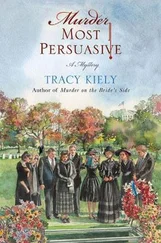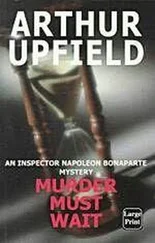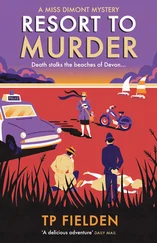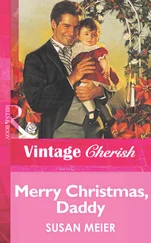“She did.”
“Then what are those?” Art pointed to a pile of little boxes, addressed and stamped, on the end of a table.
“Orders that came in the afternoon mail. I did them while she was gone to the post office.”
Art nodded. “And also while she was gone you looked in the drawer to get the ring to take home for Christmas, and it wasn’t there. You know it was there this morning because Miss Lauro asked if she could look at it again, and you showed it to her and let her put it on her finger, and then you put it back in the drawer. But this afternoon it was gone, and you couldn’t have taken it yourself because you haven’t left this room. Miss Lauro went out and got sandwiches for your lunch. So you decided she took the ring, and you phoned the insurance company, and Mr. Koenig came and advised you to call the police, and—”
“Only his stock is insured,” Koenig put in. “The ring was not a stock item and is not covered.”
“Just a legality,” Duross declared scornfully. “Insurance companies can’t hide behind legalities. It hurts their reputation.”
Koenig smiled politely but noncommittally.
Art turned to the girl. “Why don’t you sit down?” he asked her. “There’s a chair we men are not using.”
“I will never sit down in this room again,” she declared in a thin tight
voice.
“Okay.” Art scowled at her. She was certainly not comely. “If you did take the ring you might—”
“I didn’t!”
“Very well. But if you did you might as well tell me where it is because you won’t ever dare to wear it or sell it.”
“Of course I wouldn’t. I knew I wouldn’t. That’s why I didn’t take it.”
“Oh? You thought of taking it?”
“Of course I did. It was a beautiful ring.” She stopped to swallow. “Maybe my life isn’t much, but what it is, I’d give it for a ring like that, and a girl like me, I could live a hundred years and never have one. Of course I thought of taking it—but I knew I couldn’t ever wear it.”
“You see?” Duross appealed to the law. “She’s foxy, that girl. She’s slick.”
Art downed an impulse to cut it short, get out. return to the station house, and write a report. Nobody here deserved anything, not even justice— especially not justice. Writing a brief report was all it rated, and all, ninety-nine times out of a hundred, it would have got. But instead of breaking it off, Art sat and thought it over through a long silence, with the three pairs of eyes on him. Finally he spoke to Duross:
“Get me the orders that came in the afternoon mail.”
Duross was startled. “Why?”
“I want to check them with that pile of boxes you addressed and stamped.”
Duross shook his head. “I don’t need a cop to check my orders and shipments. Is this a gag?”
“No. Get me the orders.”
“I will not!”
“Then I’ll have to open all the boxes.” Art arose and headed for the table. Duross bounced up and got in front of him and they were chest to chest.
“You don’t touch those boxes,” Duross told him. “You got no search warrant. You don’t touch anything!”
“That’s just another legality.” Art backed off a foot to avoid contact. “And since I guessed right, what’s a little legality? I’m going to open the boxes here and now, but I’ll count ten first to give you a chance to pick it out and hand it to me and save both of us a lot of bother. One, two, three—”
“I’ll phone the station house!”
“Go ahead. Four, five, six, seven, eight, nine...”
Art stopped at nine because Duross had moved to the table and was fingering the boxes. As he drew away with one in his hand Art demanded, “Gimme.” Duross hesitated but passed the box over, and after a glance at the address Art ripped the tape off, opened the flap of the box, took out a wad of tissue paper, and then a ring box. From that he removed a ring, yellow gold, with a large greenish stone. Helen Lauro made a noise in her throat. Koenig let out a grunt, evidently meant for applause. Duross made a grab, not for the ring but for the box on which he had put an address, and missed.
“It stuck out as plain as your nose,” Art told him, “but of course my going for the boxes was just a good guess. Did you pay sixty-two bucks for this?”
Duross’s lips parted, but no words came. Apparently he had none. He nodded, not vigorously.
Art turned to the girl. “Look, Miss Lauro. You say you’re through here. You ought to have something to remember it by. You could make some trouble for Mr. Duross for the dirty trick he tried to play on you, and if you lay off I expect he’d like to show his appreciation by giving you this ring. Wouldn’t you, Mr. Duross?”
Duross managed to get it out. “Sure I would.”
“Shall I give it to her for you?”
“Sure.” Duross’s jaw worked. “Go ahead.”
Art held out the ring and the girl took it, but not looking at it because she was gazing incredulously at him. It was a gaze so intense as to disconcert him, and he covered up by turning to Duross and proffering the box with an address on it.
“Here,” he said, “you can have this. Next time you cook up a plan for getting credit with your wife for buying her a ring, and collecting from the insurance company for its cost, and sending the ring to a girl friend—all in one neat little operation—don’t do it. And don’t forget you gave Miss Lauro that ring before witnesses.”
Duross gulped and nodded.
Koenig spoke. “Your name is not Hippie, officer, it’s Santa Claus. You have given her the ring she would have given her life for, you have given him an out on a charge of attempted fraud, and you have given me a crossoff on a claim. That’s the ticket! That’s the old yuletide spirit! Merry Christmas!”
“Nuts,” Art said contemptuously, and turned and marched from the room, down the stairs, and out to the sidewalk. As he headed in the direction of the station house he decided that he would tone it down a little in his report. Getting a name for being tough was okay, but not too damn tough. That insurance guy sure was dumb, calling him Santa Claus—him. Art Ripple, feeling as he did about Christmas.
Which reminded him, Christmas Eve would be a swell time for the murder.
WHITE LIKE THE SNOW – Dan Stumpf

Lieutenant Mayhew brought one of the rookies upstairs to the detective bureau last week, I guess to show where he could go in a few years if he kept his pants clean. I did my bit to make an impression by hiding the magazine I was reading under a report I closed out six weeks ago. Not for Nicky-New-Guy, you understand, but more for Mayhew’s benefit. Anyway, the kid got to looking at some of the old photos we hang around the place and damn if he didn’t spot an old one of Sergeant Sughrue, smiling at the camera like a clean shotgun, and ask who it was.
“Someone before my time.” Mayhew’s one of the chiefs five-year wonders. He looked at the picture closer, then half turned to me. “How ‘bout it, Jake? You know this guy?”
Yeah, I knew him; time was when half the folks in town lived in mortal fear of Sergeant “Sugar” Sughrue and the rest of us just worried about him a lot. But nobody remembers him much these days, and the picture’d hung there so long I quit seeing it myself. So I said, “That’s just some guy I killed once.” The kid hesitated, laughed; Mayhew laughed, then pushed him down the hall and I got back to my magazine.
Not that I actually did kill Sughrue; that was just hype. Hell, I been here almost twenty years and never even shot anybody very much. But I was there when Sughrue died, and I maybe had something to do with it, so I guess what I told the kid wasn’t too far off the mark at that.
Читать дальше













